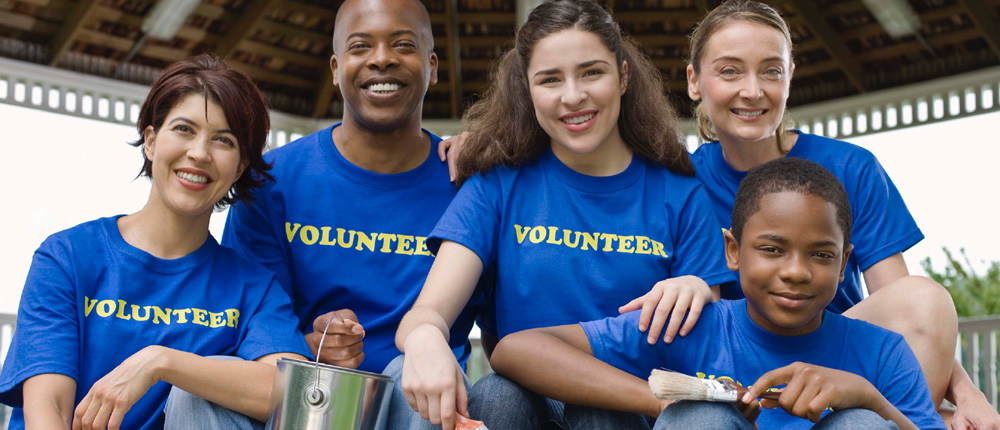I recently wrote a post to the NCHE Facebook page on community service, and it sparked such an interest that I decided to expound a bit more in this article for GREENHOUSE. Community service is an important part of living. For Christians, it is an act of faith that strengthens our relationships here and above. As with all selfless acts, the benefit is infinitely more within us than to those we help, and we grow through serving. Building a strong sense of civic duty and an ability to see needs in our community is an important part of educating our children—an important part of growing up. As I look at my own life, I can see that my work ethic and many of my values were formed by participating in acts of community service: values including attention to others, completing projects on time, working well on a team, working out of my comfort zone, finding creative solutions, and being a leader. The list could go on, and it is clear that all these things are valuable in most life situations. So, it’s not surprising that colleges and universities put a premium on students with a wide range of community service. Students with a broad background come to the collegiate environment much more ready to address the rigors of school and deal with the variety of people they will encounter than those coming with purely academic experience. My son, Ian, worked off and on for the admissions department at UNC Chapel Hill the entire time he was in school, and he would immediately attest to the advantages of the community service in acceptance at the university. Community service can be one of the few things that make your transcript really stand out from the crowd. Both of my children had in excess of 3,000 hours of community service by the time they graduated. That probably sounds like an inordinate mountain to many, but you would be surprised at how quickly it builds.
As homeschoolers, we have easy opportunities to build community service into our schooling. I was a middle school volleyball coach. My son loved volleyball, but there really wasn’t an outlet for him to participate. He started hanging out at the gym with me while I was coaching and took to the floor at every opportunity. It soon became clear that he had some talent, so I asked the staff if they would let him be my assistant coach. The girls loved him, and he learned quickly how to get them to respond to his coaching. He accrued approximately three to four hours of time per practice, so he easily acquired over two hundred hours in one season!
OK, you don’t coach a team. Do you have homeschool park day or field day for kids? Could your older kids organize and lead games? Do you have an acting group? Perhaps your student could direct a one-act play or assist a director as a stage manager. I’m sure your church has a list of shut-ins. Call the church and ask who needs a visit so you can spend some time with those who don’t often have visitors. Does your church need help in a nursery?—sounds like community service to me! Many church activities, such as singing in a choir, acolyting, or helping with a sound board can be considered community service. Does your child do martial arts? Most programs require rising black belts to teach others and that is countable time. Does your co-op have a class day? Many teachers would love to have student assistants and all of that time counts. We counted work on a yearbook staff for our co-op, which also led to leadership positions as editors— and editors contribute tons of hours! During Christmas time, there are many programs to help get gifts out to underprivileged kids or families of prisoners. There may be a Salvation Army Love Lunch you can help with periodically. Maybe you have an older neighbor who needs help walking a dog, raking leaves, or putting up Christmas lights. Serving neighbors is absolutely community service! Schools, particularly in underprivileged areas, are often looking for people to come and read to students and help them with assignments; all you have to do is ask. Every one of these activities comes with a wonderful learning benefit.
So, what way is best to go about creating a community service record for your high schooler that can translate into entries on a college application? There is no right or wrong way—just get involved and count the hours! We simply kept a list of activities on the computer in a Word file. Once a week or once a month, we updated the list with things we had accomplished. When it was time to do a college application, all I had to do was total service numbers and record them. There isn’t a lot of space on our transcript to list community service; there might be only one line for four years of a given activity so we made it very concise. You can also create a separate sheet with this information to add to your transcript. For record keeping, you could create a chart or an excel worksheet, or a good old-fashioned hand-written chart works just as well. Since your kids are high schoolers by the time counting service hours matters, let them figure out how they want to tally them! In short, you should keep track using the method that works best for you!
The dividends of teaching your family the value of community service are countless. The benefit of this service to your children when applying for colleges is also really important. So remember, sometimes, you just need to look at what you are already doing and see the areas of community service.




